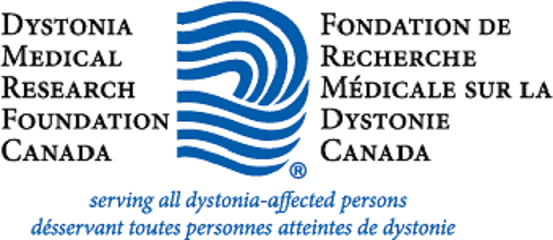The Jackson Mooney Dystonia Patient Education Grant was established to provide financial assistance of up to $5,000.00 for Canadian residents who are living with dystonia, in financial need, and committed to enhancing their current situation
Read more...Dystonia Canada News
DRMF Canada was proud to support the 2019 Banting Research Foundation Discovery Award. This year’s grant has been awarded to Dr. Nicholas Strzalkowski from the Department of Biology at Mount Royal University. The Banting Research Foundation and DMRF Canada are thrilled to be able to partner to support this outstanding early career investigator whose research focuses on sensory feedback in dystonia. Click here to learn more.
Read more...Genetic discoveries have been guiding dystonia research for a number of years now. Typically, once new genes have been discovered a quest for understanding the role of their corresponding proteins begins.
Read more...A separate line of studies explores the musician’s dystonia thanks to the James C. Kilik Memorial Research Awards. In one of the projects, Robert Chen at the University of Toronto (Canada) is investigating how modulating the functional connectivity of the cerebellum affect musician's dystonia
Read more...Yet another form of dystonia is called the myoclonus-dystonia (MD). In a separate program, supported by the Brown Family Foundation, several projects are underway or close to completion.
Read more...Several groups study functional changes in dystonia using neurophysiological approaches studying the entire human or animal brain. William Hutchison at Toronto Western Hospital (Canada) studies tremor, oscillations and synaptic plasticity in dystonia patients undergoing DBS.
Read more...The Dystonia Medical Research Foundation is pleased to announce a Call for Applications for research proposals on Clinical and Basic Aspects of Dystonia.
Letters of Intent are due by end of day on Monday, September 9. Letters should be no more than 1 page and should include a summary of the proposed research as well as names and affiliations of participating researchers.
Read more...
Dystonia Research Extra Access 2021. A DMRF hosted dystonia research update with a distinguished panel: Scientific Director Joel S. Perlmutter, MD and Medical & Scientific Advisory Council Members Ellen Hess, PhD and Aasef Shaikh, MD PhD.
Read more...DMRF Canada is thrilled to announce support of the research project: “Mechanisms of Action of DBS for Dystonia: Cholinergic Contributions to Plasticity.” By Drs. Zelma Kiss and Davide Martino at Departments of Clinical Neurosciences, Hotchkiss Brain Institute, University of Calgary. DMRF Canada has committed to fund this grant, valued at $50,000 as one of two ‘Better Clinical Treatment Grants’ supported this year.
Read more...